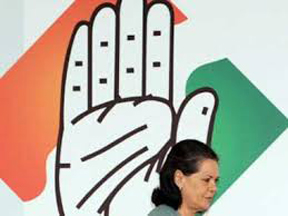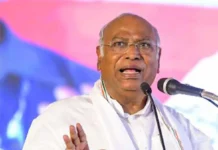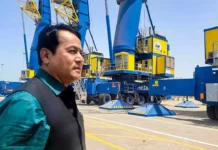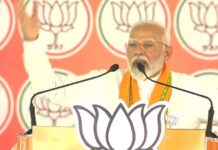 NEW DELHI: War against price rise will remain the “overriding policy priority” of Congress, AICC said today amid a growing feeling in the rank and file that inflation hit the party in the recent Assembly elections where it suffered one of the worst defeats in the recent times.
NEW DELHI: War against price rise will remain the “overriding policy priority” of Congress, AICC said today amid a growing feeling in the rank and file that inflation hit the party in the recent Assembly elections where it suffered one of the worst defeats in the recent times.
“Congress believes that price rise especially of essential commodities is the biggest burden on the common man….The war against price rise will continue to remain the overriding policy priority of the Congress party,” said a resolution at the AICC meet here.
The AICC resolution on price rise came a day after the Congress Working Committee meet, which saw party leaders “cornering” the government over its economic policies and targeting Petroleum Minister M Veerappa Moily in particular over rise in petroleum prices and cap on subsidized LPG cylinders.
Immediately after the results of Assembly elections in Delhi, Rajasthan, Madhya Pradesh and Chattisgharh in which Congress suffered a humiliating defeat, party President Sonia Gandhi had on December 8, last year accepted price rise as one of the factors for the Congress drubbing.
In the resolution, the party said that while some of the price rise is due to high prices of commodities in the international markets and other external factors, Congress remains committed to doing everything in its command to fight price rise.
“It is with this intent that all Congress-ruled states have delisted fruits and vegetables from their respective Agriculture Produce Marketing Committees (APMC) Acts so that the farmers have a choice where to sell their produce by eliminating the middleman and the consumers get the benefit of lower prices,” it said.
The resolution said that all Congress-ruled states are also invoking the Essential Commodities Act, 1955 to sternly deal with hoarding, black marketing and profiteering.
“Chronic offenders will also be detained under the Prevention of Black Marketing and Maintenance of Supplies of Essential Commodities Act, 1980,” it said.
These measures were part of the five-point formula advocated by Congress Vice President Rahul Gandhi during a meeting of 11 Congress Chief Ministers out of the 12 party-ruled states to contain inflation.
The party resolution reaffirmed its commitment to high economic growth, which is essential to create jobs and increase incomes of the common man.
However, Congress President Sonia Gandhi had a word of caution as she said that while “growth is essential and must be sustained but rapid growth alone cannot address the problems arising out of continuing disparities”.
“Tackling these is not just a matter of social justice but more importantly an existential necessity and a moral imperative.
“If the basic needs of large sections of our society are not met in tangible measure, if the growing aspirations of our people are not met in substantial measure, the fabric of our society will be stretched and torn. That is the ground where despair leads to unrest and breeds extremism as the only hope for change,” she said.
“This unrest also gives various vested interests the opportunity to pursue their selfish interests,” she said, explaining the logic of UPA bringing out schemes like MNREGA, Forest Rights Act and Food Security Act.
The resolution hailed that the rate achieved in the past nine-year period is the highest for any nine-year period in India’s history.
“Congress will continue to promote policies that create high economic growth which creates employment as well as government revenues for social welfare programs.
“The Congress pledges to maintain a business environment conducive to investment, both domestic and foreign, and entrepreneurship, especially in micro, small and medium enterprises,” the party said.
Maintaining that the proposed industrial corridors connecting all parts of the country are the most innovative infrastructure projects, it said, “Congress will continue to pursue the creation of world-class infrastructure in a time-bound manner, proactively attract investment, enhance bilateral trade and capital flows and promote the labor- intensive manufacturing sector in particular.” –PTI






